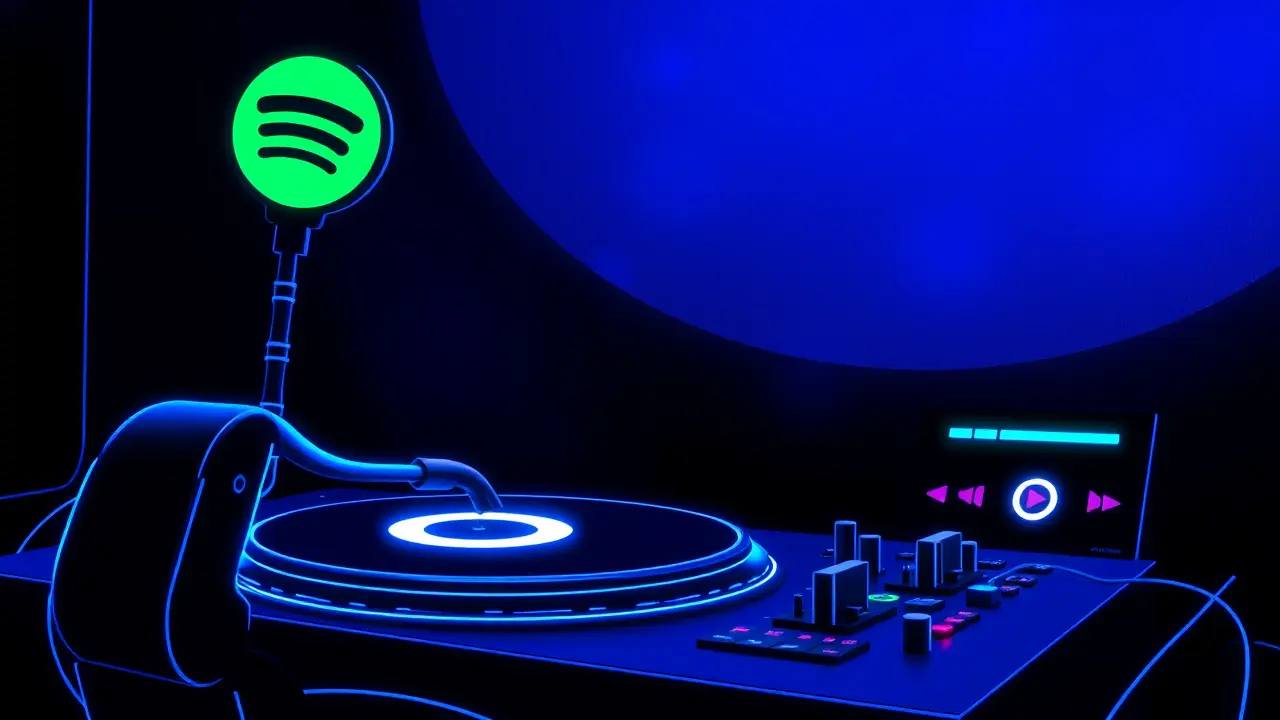Spotify AI DJ Now Accepts Text and Spanish Voice Commands
The rhythm of how we interact with our music is changing, and Spotify’s latest move feels less like a simple feature update and more like a fundamental shift in the playlist of our daily lives. The platform’s AI DJ, that personalized radio host that curates your listening sessions, has just learned a couple of new languages: text and Spanish.This isn't just a minor software tweak; it's a bridge being built, allowing you to type out your cravings for '90s grunge or speak your desire for the latest Rosalía track en español, and have the AI intuitively understand and spin the virtual turntables accordingly. Think of it as the evolution from a monologue to a dialogue with your music library.For years, the dream of voice-controlled music has been a stilted affair, a series of rigid commands that often felt like talking to a stubborn librarian. This new capability, especially the nuanced understanding of Spanish-language requests, transforms the DJ from a passive algorithm into an active, conversational partner.It’s the difference between requesting ‘play some music’ and telling your DJ, ‘I’m having a nostalgic afternoon, hit me with those classic Juan Luis Guerra bachatas,’ and having it not only comply but build an entire set around that emotional core. This speaks to a deeper current in the music streaming wars, a push towards hyper-personalization that goes beyond algorithmic curation into the realm of empathetic companionship.The AI DJ is being trained to understand not just the ‘what’ of your request, but the ‘why’ behind it, the cultural context and the emotional weight of a specific genre or artist. It’s a move that acknowledges the global, polyglot nature of modern music fandom, where a listener’s tastes might fluidly move from Bad Bunny to The Beatles, demanding a guide that can navigate that sonic landscape without missing a beat.The inclusion of Spanish is particularly resonant; it’s a nod to one of the most vibrant and influential music markets in the world, a recognition that the future of music isn't monolingual. It’s a feature that could fundamentally alter how families share music in the car, how parties are soundtracked, and how cultural connections are forged through sound.As a music blogger who has spent a lifetime chasing the perfect playlist, this feels like the moment the mixtape went sentient, capable of reading your mood from a sentence and composing a score for your life in real-time. The consequence is a listening experience that becomes less about you searching for music and more about the music finding you, a seamless, almost telepathic flow of sound guided by a digital host that’s learning to speak your language, in every sense of the word.
Latest News
The charts are whispering what the true believers have felt in their bones for weeks—Dogecoin is carving out a bottom.
17 hours ago5 comments
The Institute for Fiscal Studies has thrown a stark warning onto Rachel Reeves's desk, urging the Chancellor to confront a potential £22 billion shortfall in
17 hours ago3 comments
Alright, let's break down this absolute heater of a performance from the Chicago Blackhawks, because if you missed this one, you missed a party.
17 hours ago5 comments
The ice was hot last night in the NHL, folks, serving up a slate of games that felt less like a regular season Tuesday and more like a playoff preview with a
18 hours ago3 comments
The XRP chart is painting a tantalizing picture for those with the stomach to withstand the relentless pressure from crypto's leviathans.
18 hours ago4 comments
It’s in the small shifts, the quiet recalibrations of a Thursday morning, where the most meaningful change often takes root.
18 hours ago4 comments
In a move that sent ripples of quiet confidence through the crypto ecosystem, blockchain intelligence firms tracked a monumental treasury allocation from
18 hours ago4 comments
In a move that would have drawn a nod of approval from historical figures like Churchill, who understood the delicate balance of power within democratic
18 hours ago2 comments
CH
Chloe Miller123k16 hours ago
oh wow an AI that finally understands my deep emotional need for 90s grunge, how revolutionary tbh it’s just shuffling with extra steps
0
JA
Jamie Larson123k19 hours ago
reading this from the year 2099, still relevant tbh my ai dj just played me 21st century ambient whale songs, it gets me
0
CA
Carla Jensen123k20 hours ago
sounds ambitious but i've been burned by these 'revolutionary' ai updates before idk if it actually gets the vibe or just plays the same popular stuff
0
MA
Maya Rivers123k1 day ago
the music finding you... not you searching for it that's a lovely kind of quiet magic, isn't it? a small score for the soul
0
